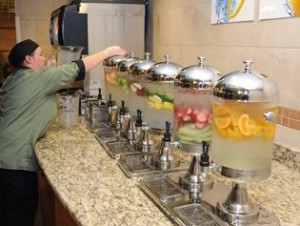We All Age But…
There is no way to avoid the aging process. Our bodies age, we get new wrinkles in relative the same pace. The one difference is, our Brains age differently. The majority of us will encounter some level of age related decline, but some of us will experience a more pronounced level of cognitive decline and/or dementia. Although our chances of getting dementia increase with age, dementia is not a part of the natural aging process. Dementia is caused when the brain is damaged by diseases, such as Alzheimer’s disease or a series of strokes.
Many Studies have been done Comparing the Aging Population with those with a Cognitive Impairment or Dementia…
There have been numerous studies done involving those with Mild Cognitive Impairment (MCI) or Mild Dementia that looked at how that impairment changed a person’s views about themselves. These studies showed that Cognitive Impairment showed could profoundly affect a person’s understanding of their place in the world.
Two Groups of Seniors…..
Studies looked at two groups of seniors. One group of seniors without a cognitive impairment or dementia and one group with one or both of those impairments. Both groups described experiencing common memory mistakes such as forgetting names of friends and neighbors, misplacing common items, and repeating themselves in conversation. These incidents resulted in a variety of negative emotional experiences and self-evaluations that were expressed differently by the two groups. Participants with age-normal memory changes described feeling as if they are getting forgetful but attributing that forgetfulness to normal aging that happens to everyone and laughing it off as a goof. On the other hand the group with the MCI or dementia felt “bothered,” “upset,” and “embarrassed” by their memory mistakes. They expressed some degree of self-doubt about their abilities and a tendency to put themselves down. Some even said that their memory mistakes made them “feel stupid.”
More Differences Between the Two Groups of Seniors…
Memory changes showed to have important consequences for everyday social interactions and relationships with others. The changes described were generally positive for older adults with age-normal memory changes and generally negative for those with a MCI or Dementia. The group with normal memory change described a sense of camaraderie with their same-age peers who experience similar types of memory changes. In contrast to the normal memory group, individuals with Cognitive Impairment spoke about how their memory problems have led to social withdrawal and isolation . They also stated that they “don’t get out as frequently,” that they are “withdrawing more from social occasions,” and even that they have become more “introverted.” There are a variety of reasons as to why memory problems have led to social withdrawal in the group with the Cognitive Impairment. Remembering friends’ names and shared experiences is an important part of social relationships, and failure to do this can be embarrassing or frustrating. For some individuals, withdrawing from social interactions is a way to avoid embarrassment. Seniors with a Cognitive Impairment, said they have more difficulty engaging in activities because their more significant memory problems leave them feeling lost, confused, or embarrassed. They describe feeling left out or disregarded in social interactions, thus causing them to withdraw from these activities to an even greater degree. In many cases the result is a loss of confidence which leads to withdrawal from social and leisure activities, and the consequent decline in participation in these activities results in increasing difficulty in these areas, followed by further loss of confidence and feelings of inadequacy.
What Happens when the Two Groups Consistently Interact….
In most cases Cognitive Impairment or Dementia will not get better. It is a progressive disease that only gets worse. Currently there is no cure. It is almost impossible to teach all those Without a cognitive impairment how to interact with those With a cognitive impairment correctly. In many cases they wont even understand or know what they are doing wrong. When seniors with no cognitive impairment consistently interact with seniors with cognitive impairment, the deficits of the impaired group become more and more obvious each day. These results lead to decreased confidence and ultimately isolation for the group that is cognitively impaired.
 What is the Answer?
What is the Answer?
Although there is no perfect answer or a solution, the best answer is a Cognitive Care Community. A community where all the residents have a degree of cognitive impairment and are grouped by the level of their impairment. In a Cognitive Care Community, residents interact with those that are on their level cognitively. They may be enjoying a lunch where all the table mates take turns telling the same story they already told. Because all of them are doing it, no one is made to feel worse than the other. There is no one at that table that will cut off a table mate mid story and say “you already told us that story”, “stop being repetitive”. All four leave the lunch feeling good about themselves without their deficit being in the forefront. The goal is to make those good feelings last for as long as possible…











